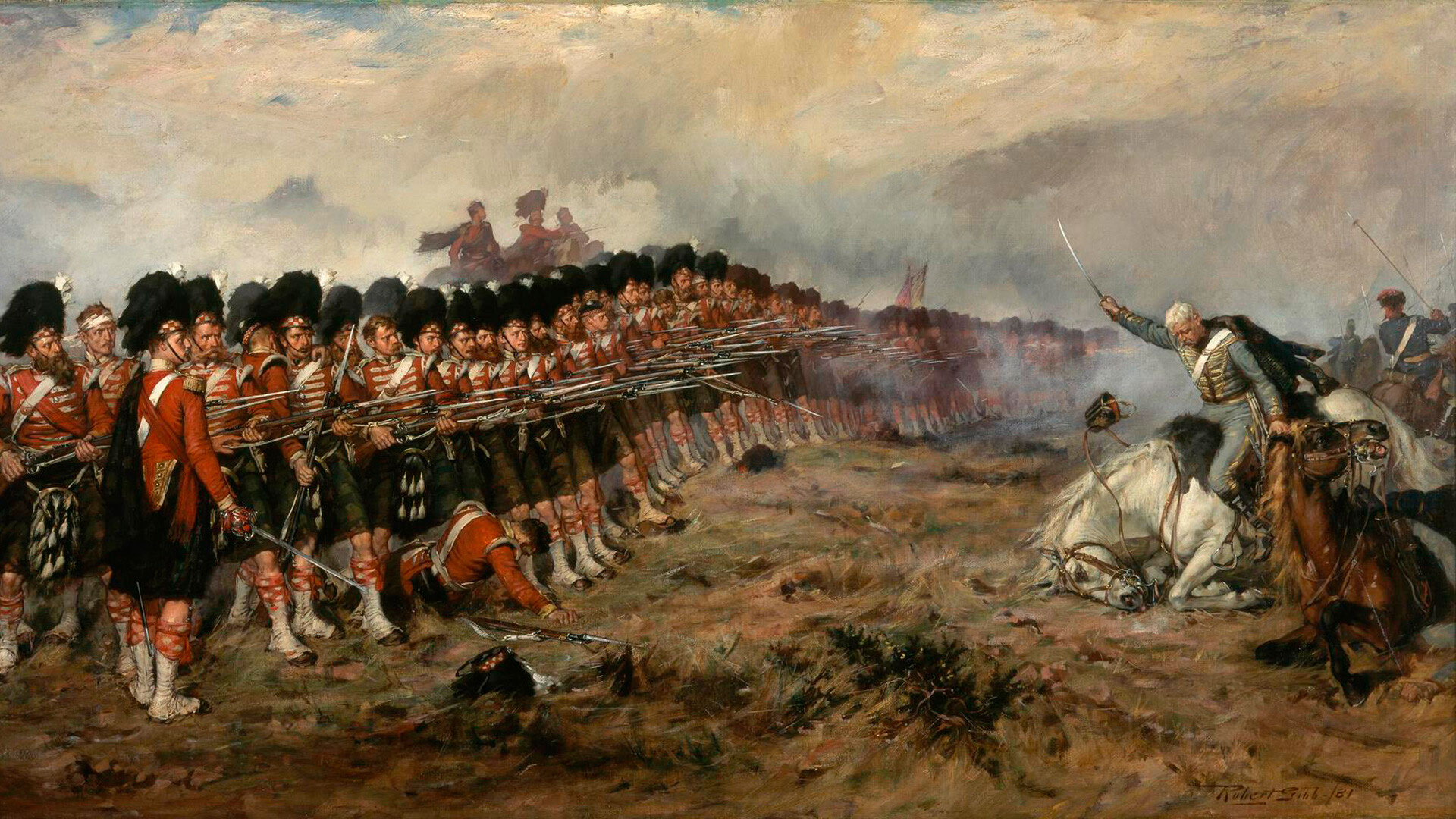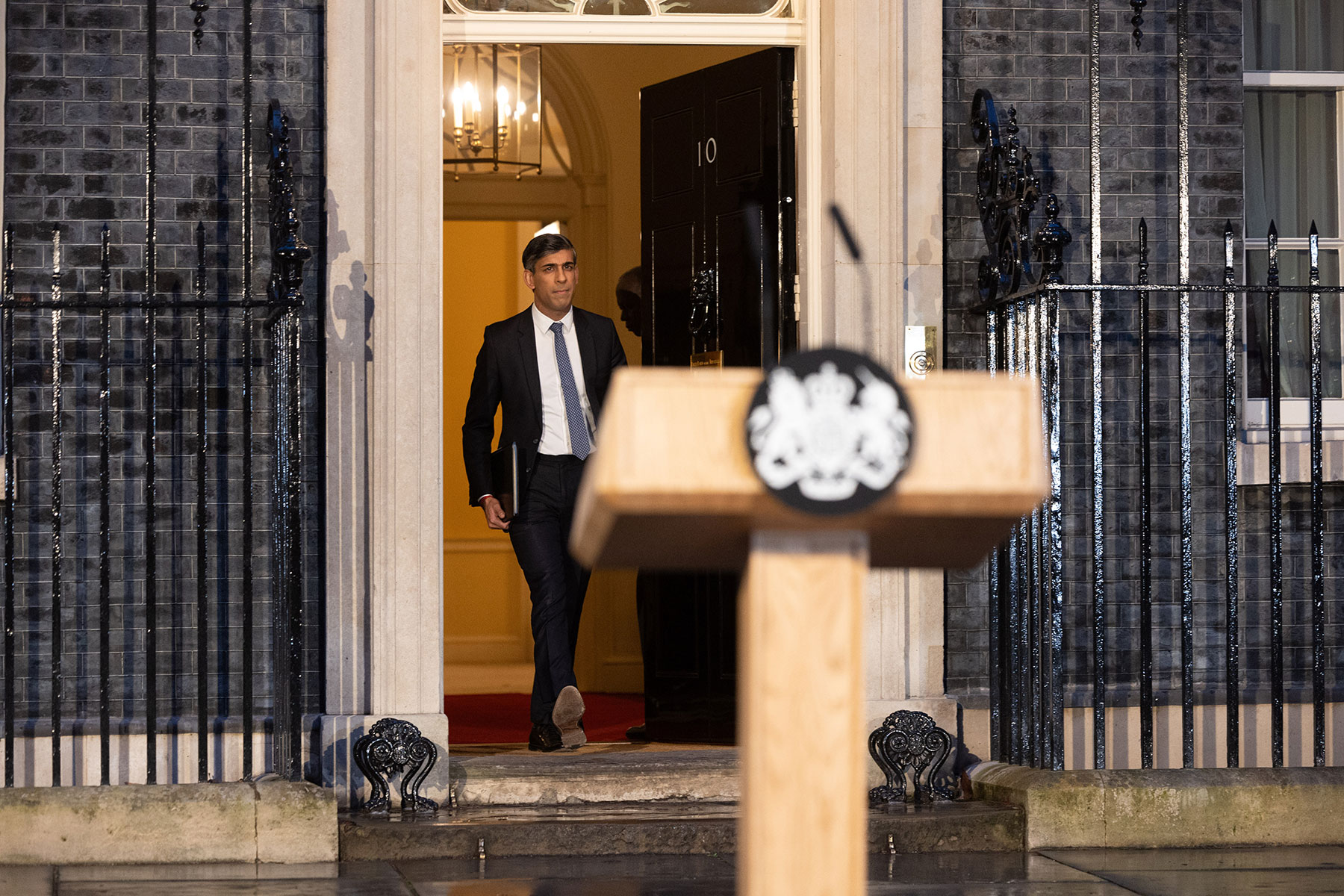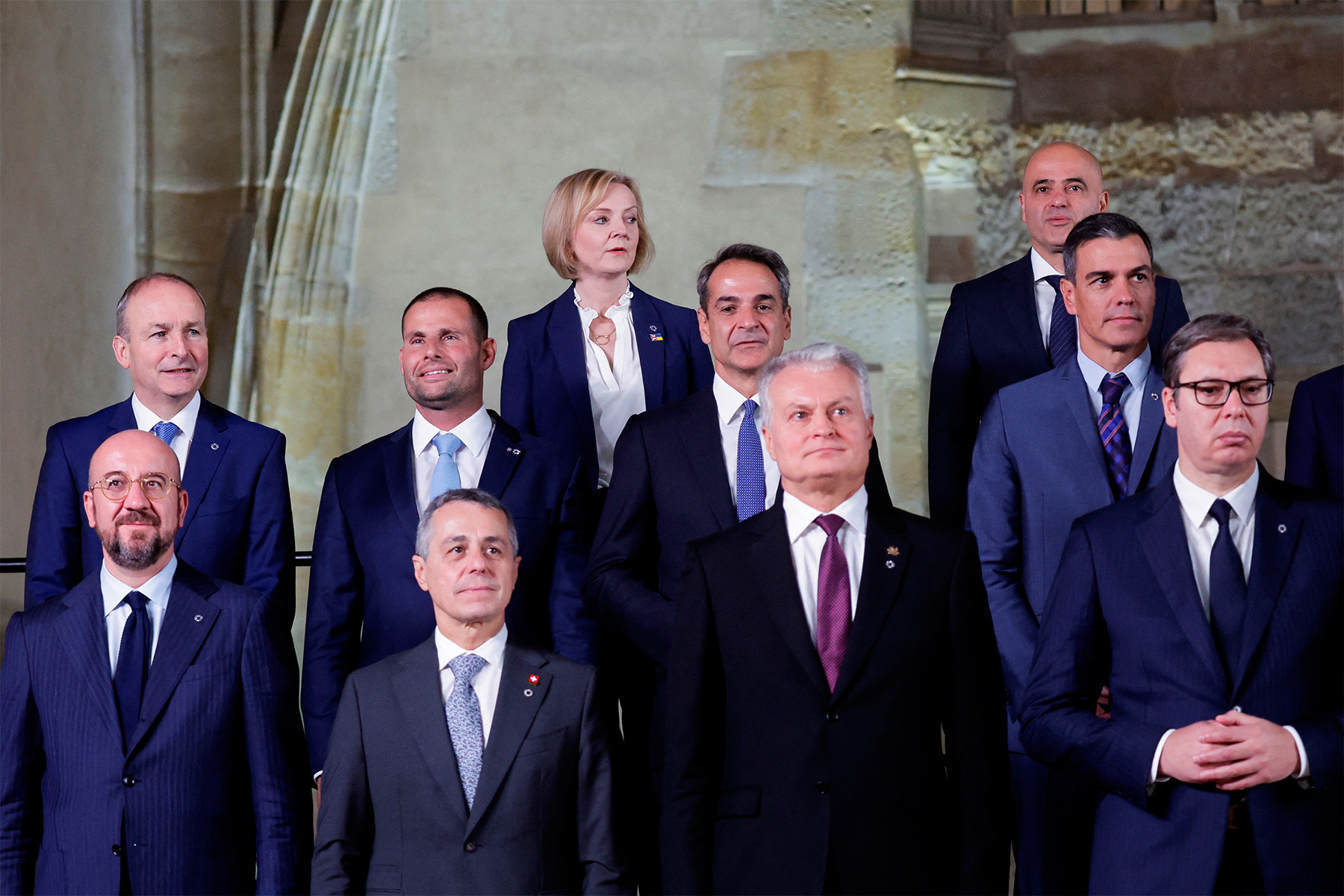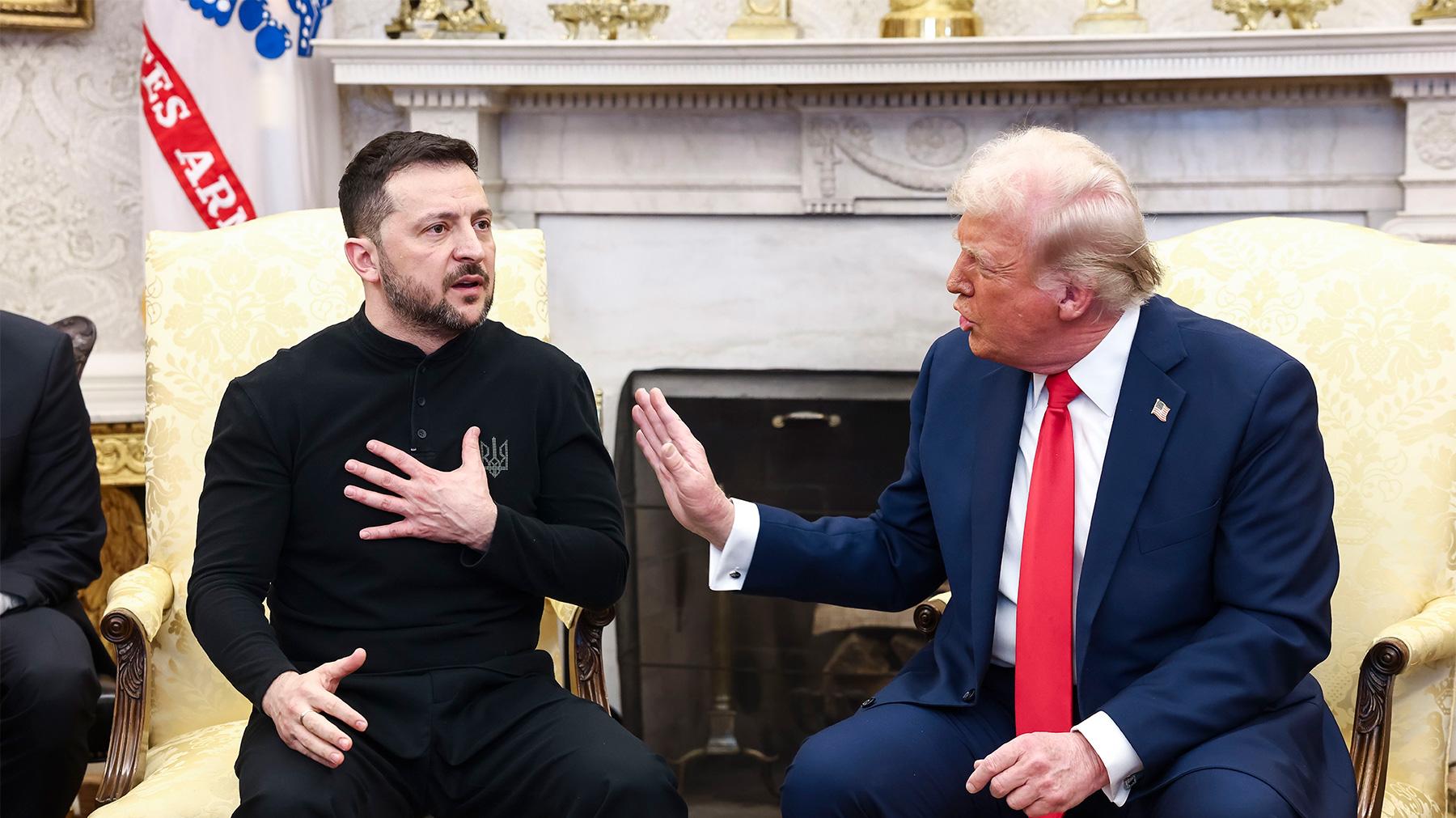Britain’s traditionally hostile attitude towards Russia—starting at least as early as 1791, when Prime Minister Pitt the Younger lambasted Russia for wishing to carve up the Ottoman Empire, continuing with the Crimean War and then the Great Game—has again come to the fore with the Ukrainian conflict. Sir Keir Starmer must therefore be in a bit of a tangle, given the momentous changes apparently occurring within the Trump administration, leading to various reactions—some verging on hysterical—from EU members. Indeed, following the public quarrel between Trump and Zelenski, a resetting of the western inter-state order could be on the cards. The latter has of course happened before, and it is worth remembering Francesco Guicciardini’s dictum that things have always been the same; the past sheds light on the future, but that the same things return with different names and colours. The West is currently undergoing a period of confusion that many analysts find difficult to understand. The London-instigated 2 March meeting of various European leaders, Canada and Turkey is unlikely to alter Trump’s and Putin’s objectives but merely irritate them. This article will aim to analyse what is happening and why, as well as delve deeper into the background of the conflict, positing that much depends on the individual, with factors such as face-saving, ambition, atavism and jingoism playing a significant role.
Since at least the reign of Henry VIII, Britain has pursued a policy of ensuring that no single power would be strong enough to lead Europe, since she considered that this posed a threat to her interests. Hence the wars against Louis XIV and Napoleon, to name but some. In both world wars, Britain declared war on Germany (ostensibly to save Belgium and Poland respectively), because she could not stomach the idea of a German domination of the Continent. Following the last world war, Britain reverted to her old Mackinderian obsession with keeping Germany and Europe away from Russia, fearing that European-Russian friendship would weaken Britain’s influence. Her antagonistic stance towards her recent wartime ally was based not so much on ideological differences, but rather on the desire to keep Europe and the USSR at loggerheads. The ideological propaganda was simply to gain the support of the masses. Lord Ismay, NATO’s first Secretary General, put it bluntly but pertinently when he said that the purpose of the Alliance was to keep the Americans in Europe, the Russians out, and the Germans down.
Now, it looks as if Britain’s attempts to keep NATO strong are being undermined by the possibility that America could even leave NATO. This would have the effect of leaving the rest of NATO as a de facto European army, which would of course be anathema to British policy unless it could only operate with Washington’s permission. As recently as 2019, President Macron himself described NATO as ‘brain-dead’.
Much seems to be changing. Paradoxically, despite Britain’s exit from the European Union, she now finds herself playing a leading role in European security. On the face of it, public statements by President Trump and his team show their wish to reduce their involvement in Europe’s security, make amends with Moscow and bring the fighting in the Ukraine to an end, considering Moscow’s interests.
Britain’s position vis-a-vis America is now one of backpeddling on Starmer’s earlier negative public views on Trump, before the latter was re-elected. Yet despite the backpeddling, Britain is now trying to lead Europe into continuing a war that America is trying to stop yet simultaneously trying to cajole America.
Looking back, European Union’s original love of peace, cooperation and democracy is being questioned. A prime example is the cancellation in Romania of Calin Georgescu’s massive election victory, followed by his arrest and being charged, inter alia, with incitement to act against the constitutional order, and even for “forming an antisemitic organisation.” He has also been banned from communicating with the media. Clearly, EU member Romania is trying to justify the cancellation of the election result. On top of this, internal EU squabbles, such as the clash between EU and Polish law, abound. Hungary is another case, where the country has simply ignored EU policy on immigration and arming Kiev. Since at least Maidan, there has been no coherent or coordinated EU foreign policy. Various political parties, such as the German AfD, even wish to emulate Brexit. While much of the lack of coherence can also be ascribed to the indecent speed in expanding membership since 2004, with its concomitant administrative confusion, a crisis such as the situation in Ukraine is simply too much for Brussels to cope with alone. This is the Europe that Britain is now trying to lead against Russia: a motley collection of EU members, many with their own agenda, acting individually, since all EU members will not agree. This puts Britain in a strong position to at least appear as referee. To end on a cynical note, Britain will be helping shareholders in the large American arms companies to get even richer, since European countries will need to buy arms from America.
Britain’s traditionally hostile attitude towards Russia—starting at least as early as 1791, when Prime Minister Pitt the Younger lambasted Russia for wishing to carve up the Ottoman Empire, continuing with the Crimean War and then the Great Game—has again come to the fore with the Ukrainian conflict. Sir Keir Starmer must therefore be in a bit of a tangle, given the momentous changes apparently occurring within the Trump administration, leading to various reactions—some verging on hysterical—from EU members. Indeed, following the public quarrel between Trump and Zelenski, a resetting of the western inter-state order could be on the cards. The latter has of course happened before, and it is worth remembering Francesco Guicciardini’s dictum that things have always been the same; the past sheds light on the future, but that the same things return with different names and colours. The West is currently undergoing a period of confusion that many analysts find difficult to understand. The London-instigated 2 March meeting of various European leaders, Canada and Turkey is unlikely to alter Trump’s and Putin’s objectives but merely irritate them. This article will aim to analyse what is happening and why, as well as delve deeper into the background of the conflict, positing that much depends on the individual, with factors such as face-saving, ambition, atavism and jingoism playing a significant role.
Since at least the reign of Henry VIII, Britain has pursued a policy of ensuring that no single power would be strong enough to lead Europe, since she considered that this posed a threat to her interests. Hence the wars against Louis XIV and Napoleon, to name but some. In both world wars, Britain declared war on Germany (ostensibly to save Belgium and Poland respectively), because she could not stomach the idea of a German domination of the Continent. Following the last world war, Britain reverted to her old Mackinderian obsession with keeping Germany and Europe away from Russia, fearing that European-Russian friendship would weaken Britain’s influence. Her antagonistic stance towards her recent wartime ally was based not so much on ideological differences, but rather on the desire to keep Europe and the USSR at loggerheads. The ideological propaganda was simply to gain the support of the masses. Lord Ismay, NATO’s first Secretary General, put it bluntly but pertinently when he said that the purpose of the Alliance was to keep the Americans in Europe, the Russians out, and the Germans down.
Understanding her reduced economic and military strength after the last war, Britain was nevertheless able to present herself as a serious world power, owing to her special relationship with America, although British Prime Minister Edward Heath described this as piggybacking the American policy. De Gaulle was more cutting in his comments, describing Britain as America’s Trojan Horse in Europe, then leaving NATO’s integrated military structure in 1966. Despite the French stance, NATO ploughed on, simply moving its headquarters from Paris to Brussels. Gaullism remained, it can be argued, as a balancing—and nuclear armed—force between the Anglo-Saxons and Moscow. Britain and Washington’s essential aim was to prevent a united European army that was entirely independent. In this it has so far succeeded; President Sarkozy’s rejoining NATO’s integrated military structure in 2009 came as a blessing to the Anglo-Saxons. One can recall here Bismarck’s prediction that the most significant event of the twentieth century would be the fact that the North Americans spoke English. However, no one has yet said that the most significant event of the twenty-first century is the fact that the English speak North American. Thus, America and Britain have able to put a brake on Franco-German attempts to create a European army independent of NATO. Now, it looks as if Britain’s attempts to keep NATO strong are being undermined by the possibility that America could even leave NATO. This would have the effect of leaving the rest of NATO as a de facto European army, which would of course be anathema to British policy unless it could only operate with Washington’s permission. As recently as 2019, President Macron himself described NATO as ‘brain-dead’.
Much seems to be changing. Paradoxically, despite Britain’s exit from the European Union, she now finds herself playing a leading role in European security. On the face of it, public statements by President Trump and his team show their wish to reduce their involvement in Europe’s security, make amends with Moscow and bring the fighting in the Ukraine to an end, considering Moscow’s interests. Perhaps they are aware that Moscow traditionally reacts, but rarely immediately, to what it considers as provocation, a prime example being the setting up of the Warsaw Pact a full six years after NATO began, and even then, only after Moscow’s overtures to join NATO had been rejected. Following NATO’s expansion—accompanied by the illegal bombing of Belgrade—Moscow again made overtures to NATO but was turned down. The subsequent near-destruction of Iraq, Afghanistan, Libya and Syria followed, not to forget the Maidan debacle. When Boris Johnson told President Zelensky not to accept a peace agreement, this convinced Moscow that there was little choice but to continue its operation in Ukraine. After the Minsk agreements had proven, as admitted by the German Chancellor Angela Merkel, to be a way to give more time to rearm Ukraine, the die was cast, and Moscow ceased to trust the West. However, President Trump’s new public policy has put the cat among the pigeons, leaving Britain embarrassed.
Britain’s position vis-a-vis America is now one of backpeddling on Starmer’s earlier negative public views on Trump, before the latter was re-elected. Yet despite the backpeddling, Britain is now trying to lead Europe into continuing a war that America is trying to stop yet simultaneously trying to cajole America. Thus, Britain’s new ambassador to Washington, Peter Mandelson, has said that his past criticisms of Trump were wrong: in 2019, he had described the president as being “reckless and a danger to the world.” In Starmer’s recent visit to meet Trump, he issued an unprecedented second invitation from King Charles for a state visit. Yet such attempts to be on both sides of the fence simultaneously are hardly going to help consistency. What seems like contrived bonhomie on Starmer’s part is unlikely to sway Trump, at least on a personal level: first, Trump’s mother was born and bred in the Outer Hebrides, which hardly means that Trump has an emotional attachment to England; and second, Trump is an avowed Christian, while Starmer is an atheist.
Now the world is witnessing London’s full, even leading, support to send troops to Ukraine following an end to the fighting and urging EU members to operate together militarily. Institutionally, the EU is unable to act as one, not least because of opposition from Hungary and Slovakia. Thus, London and its French “competitor” are vying for prominence to show Trump that they can act independently of Washington; the big difference is that London can no longer easily play its traditional role of American Trojan Horse. Stoking up people’s fear of Moscow, on 25 February, Starmer spoke of a “dangerous new era,” thereby justifying an increase in defence spending, to the detriment of the foreign aid budget. A cynic might say that this kind of behaviour is redolent of Churchillian anti-Hitler gung-ho British pluck. Again, Guicciardini’s dictum can once again be recalled.
Despite Britain’s current stance, the possibility of a rupture with America would go against the grain of British policy for at least the last one hundred years, and suck the British economy lock, stock and barrel into Europe. Starmer must be in a serious quandary. Thus, Britain’s objective is to be at least a bridge between America and Europe, if she is unable to lead a new Europe in association with America. Once Russia has finalized her objectives in the Ukraine and re-set her relations with America (already underway), the big question for Britain will be whether it can prevent the emergence of a European army independent of America, something which she has herself—oxymoronically—initiated. Britain as a bridge may however be a viable possibility, given the current animosity between most EU states and America. This explains why King Charles met with Zelensky and will do so with Trump.
Predicting with precision is of course impossible, as the recent public quarrel between Trump and Zelenski shows, whether it was planned or spontaneous. However, Britain will do her utmost to present herself as the referee in the US-Europe standoff, since Trump has scotched the possibility of Brexit Britain playing a leading role within an EU hostile to the US. A historical parallel is 1949, when Britain refused to countenance any hint of supranationality, thus losing its leadership role: the Council of Europe was a poor shadow of the original idea (Croft, 617-629).
All the above leads us to our final thesis: that it is individual human characteristics, particularly those of western leaders, that have—and will—determine the outcome of the current whirlwind of events. Mainly with the help of social media, X in particular, inter-state diplomacy has transformed into personal sniping between leaders, for the world to see. Sound-bites are taking over from rational policy formulation. Firm and skillful leadership is lacking. Thucydides is well known for having written that “love of power, operating through greed and through personal ambition, was the cause of all this evil [the Peloponnesion Wars],” while Guicciardini wrote: “For greedy men believe easily whatsoever they desire”, “Avarice in a prince is incomparably more hateful than in a private man” (Mallinson, 19). Just as today, both men lived at a time when both Italy and Greece were undergoing a strong dose of chaos, with wars between city states, shifting alliances, and the involvement of strong external powers: France, the Holy Roman Empire and Spain, in the case of Italy, and the Persian Empire in the case of Greece—hence their relevance today. Both saw human nature and characteristics as vital, if not essential, causes of events. Guicciardini’s understanding of human nature can be encapsulated in this maxim of his: “How wide the difference between theory and practice, and how many there are who, with abundant knowledge, remember not or know not how to turn it to account!”(Mallinson,17).
Their views are relevant today, but rarely heeded, if to consider the inconsistent and sometimes dangerously emotional behaviour of some of our western leaders. Social media significantly influence public policy. According to the late Umberto Eco: “Social media gives legions of idiots the right to speak when they once only spoke at a bar after a glass of wine, without harming the community ... but now they have the same right to speak as a Nobel Prize winner. It's the invasion of the idiots.” Social media is now challenging traditional diplomacy. X can lead to all kinds of emotional spats, not to mention being open to attack from virtually any quarter. It is essentially a game for people to bloat their egos in public. Those who use it to promote their official views or careers open themselves to unwarranted attacks from cranks and enemies. To imply that it is a useful part of diplomacy is off beam. It can lead to a dissipation of seriousness and is but a cheap substitute for serious analysis and evaluation, so vital to the formulation of policy. For even if there is still some traditional formulation of policy, it is surely being eroded subliminally in the minds of those responsible for formulating policy. In short, the misuse of social media is trivialising the serious business of policy formulation. The speed and greed engendered by the obsession with digitalization—and irresponsible use of technology—mean that communication is destroying communication, ironically in the very name of communication. The space to reflect, so crucial to decision-making, is no longer there, but digital totalitarianism is. Here, Guicciardini again comes to mind, even if only indirectly: “Any man who takes upon him to introduce changes into the government of Florence, unless he be constrained thereto by necessity or happen to be at the head of affairs, lacks wisdom. […] after the change is made, you are condemned to endless torment in having always to fear further innovation.” (Mallinson, 114). The point here is to show how fashionable innovations can create their own momentum and get out of control by Artificial Intelligence.
In the current confusion, it is not easy to identify serious and well-educated leaders who command respect. Some are placemen, holding positions not so much by virtue of their own charisma, intelligence and hard work, but as stopgaps. Perhaps an extreme example is that of Liz Truss, the most short-lived British Prime Minister ever—who, as Foreign Secretary, announced in an emotional and jingoistic outburst that she was willing to hit Britain’s nuclear button if necessary—even if meant global annihilation. She was clearly not up to the job, even then—bizarrely—being promoted to the position of Prime Minister. As for the ambitious and rumbustious Boris Johnson, for all his experience, he commented some years ago that President Macron of France was Putin’s “lickspittle.” He would hardly do that now, as he does not present an image of consistency, so vital with serious leaders.
Also mentionable is the German Green Party: it has transmogrified from a peace-loving, environment-loving movement to a warlike anti-Russian party. It is bizarre that a youngish woman, Annalena Baerbok, a Green, is German Foreign Minister, doing all she can to promote NATO’s anti-Russia agenda. Most undiplomatically, another leader, Kaja Kallas, the EU foreign policy chief, said on X after the Trump-Zelensky confrontation: “Today, it became clear that the free world needs a new leader.” Many are entitled to think that her emotion is driven by her country, Estonia’s, animosity towards Russia.
Looking back, European Union’s original love of peace, cooperation and democracy is being questioned. A prime example is the cancellation in Romania of Calin Georgescu’s massive election victory, followed by his arrest and being charged, inter alia, with incitement to act against the constitutional order, and even for “forming an antisemitic organisation.” He has also been banned from communicating with the media. Clearly, EU member Romania is trying to justify the cancellation of the election result. On top of this, internal EU squabbles, such as the clash between EU and Polish law, abound. Hungary is another case, where the country has simply ignored EU policy on immigration and arming Kiev. Since at least Maidan, there has been no coherent or coordinated EU foreign policy. Various political parties, such as the German AfD, even wish to emulate Brexit. While much of the lack of coherence can also be ascribed to the indecent speed in expanding membership since 2004, with its concomitant administrative confusion, a crisis such as the situation in Ukraine is simply too much for Brussels to cope with alone. This is the Europe that Britain is now trying to lead against Russia: a motley collection of EU members, many with their own agenda, acting individually, since all EU members will not agree. This puts Britain in a strong position to at least appear as referee. To end on a cynical note, Britain will be helping shareholders in the large American arms companies to get even richer, since European countries will need to buy arms from America.
References
1. Croft, Stuart, ‘British Policy towards Western Europe, 1947-9: the best of possible worlds?’, International Affairs, Butterworths, Volume 63, Number 4, Autumn 1988.
2. Mallinson, William, Guicciardini, Geopolitics and Geohistory: Understanding Inter-State Relations (Palgrave Macmillan/Springer Nature, 2021.








